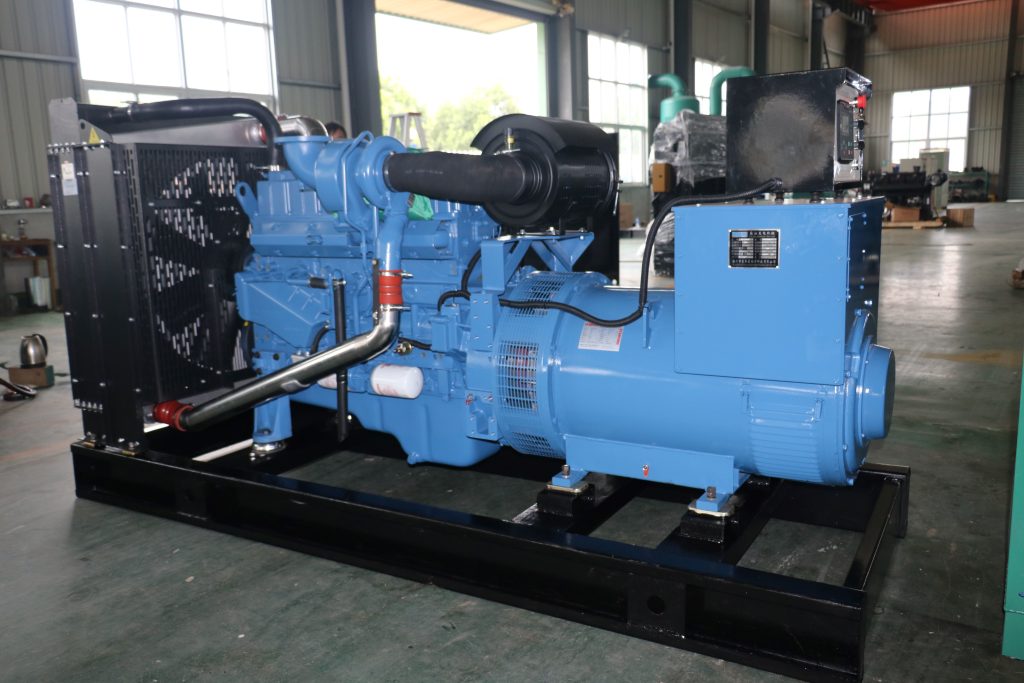Introduction
Diesel generators play a crucial role in providing backup power in various settings, from residential homes to industrial facilities. However, one of the challenges associated with diesel generators is the noise they produce during operation. Excessive noise from diesel generators can be a significant source of disturbance, especially in residential areas and urban environments. To address this issue, noise regulations have been put in place to ensure that diesel generators operate within acceptable noise levels. In this article, we will explore the importance of diesel generator noise regulations, the impact of noise pollution, and strategies to ensure compliance and minimize disturbance.
The Impact of Noise Pollution
Noise pollution is a growing concern in today's society, with various sources of noise contributing to environmental and health hazards. Diesel generators are one of the significant sources of noise pollution, especially in urban areas where noise levels are already high. Prolonged exposure to high levels of noise can have detrimental effects on human health, including hearing loss, sleep disturbances, stress, and cardiovascular issues.

In addition to the health impacts, noise pollution can also have economic consequences. Excessive noise can reduce property values, affect productivity in workplaces, and disrupt the quality of life for residents in affected areas. Therefore, it is essential to regulate noise emissions from diesel generators to minimize the negative impacts of noise pollution on both humans and the environment.
Diesel Generator Noise Regulations
Diesel generator noise regulations are put in place to limit the amount of noise that generators can produce during operation. These regulations are typically set by government agencies or local authorities and are designed to protect the health and well-being of individuals living or working near diesel generator installations. The regulations specify maximum allowable noise levels, typically measured in decibels (dB), at various distances from the generator.
The specific noise regulations for diesel generators can vary depending on the jurisdiction and the intended use of the generator. For example, regulations for residential areas may be more stringent than those for industrial or commercial settings. It is crucial for diesel generator operators to understand and comply with the relevant noise regulations to avoid potential fines, penalties, or legal consequences.
Strategies for Ensuring Compliance
Complying with diesel generator noise regulations requires a proactive approach to noise management. Here are some strategies that diesel generator operators can implement to ensure compliance and minimize disturbance:
1. Proper Siting: The location of the diesel generator plays a crucial role in determining the level of noise that reaches surrounding areas. Generators should be sited away from sensitive receptors such as residential buildings, schools, hospitals, and other noise-sensitive facilities. Adequate distance and physical barriers can help reduce the transmission of noise to neighboring properties.
2. Soundproofing: Implementing soundproofing measures around the diesel generator can significantly reduce noise emissions. This may include installing acoustic enclosures, barriers, or mufflers to dampen the sound produced by the generator. Regular maintenance and inspection of soundproofing equipment are essential to ensure its effectiveness.
3. Routine Maintenance: Proper maintenance of the diesel generator is essential to ensure that it operates efficiently and quietly. Regular servicing, tuning, and inspection of the generator can help identify and address any issues that may contribute to increased noise levels. Keeping the generator in good working condition can also extend its lifespan and reduce the risk of unexpected breakdowns.
4. Monitoring and Testing: Regular monitoring and testing of noise levels produced by the diesel generator are essential for compliance with noise regulations. Operators should conduct periodic noise assessments using sound level meters to measure the noise emissions at different distances from the generator. This data can help identify any potential noise exceedances and inform corrective actions.
5. Noise Mitigation Measures: In cases where noise levels exceed the allowable limits, operators can implement additional noise mitigation measures to reduce the impact of noise on surrounding areas. This may include installing additional sound barriers, upgrading soundproofing equipment, or adjusting the operating parameters of the generator to minimize noise emissions.
6. Community Engagement: Effective communication with the local community is key to addressing concerns related to diesel generator noise. https://www.lkpowerplant.com/product/quick-delivery-emergency-standby-power-400kw-silent-type-diesel-generator-set-for-peru/ should engage with residents, business owners, and other stakeholders to raise awareness about noise regulations, address any noise complaints, and collaborate on potential solutions to minimize noise disturbance.
Conclusion
Diesel generators play a vital role in providing backup power in various settings, but their noise emissions can pose significant challenges in urban environments. Diesel generator noise regulations are essential to ensure that generators operate within acceptable noise levels and minimize disturbance to surrounding areas. By understanding and complying with noise regulations, implementing sound management practices, and engaging with the local community, diesel generator operators can mitigate the impact of noise pollution and contribute to a healthier and more sustainable environment. Together, we can work towards a future where diesel generators coexist harmoniously with the communities they serve.
